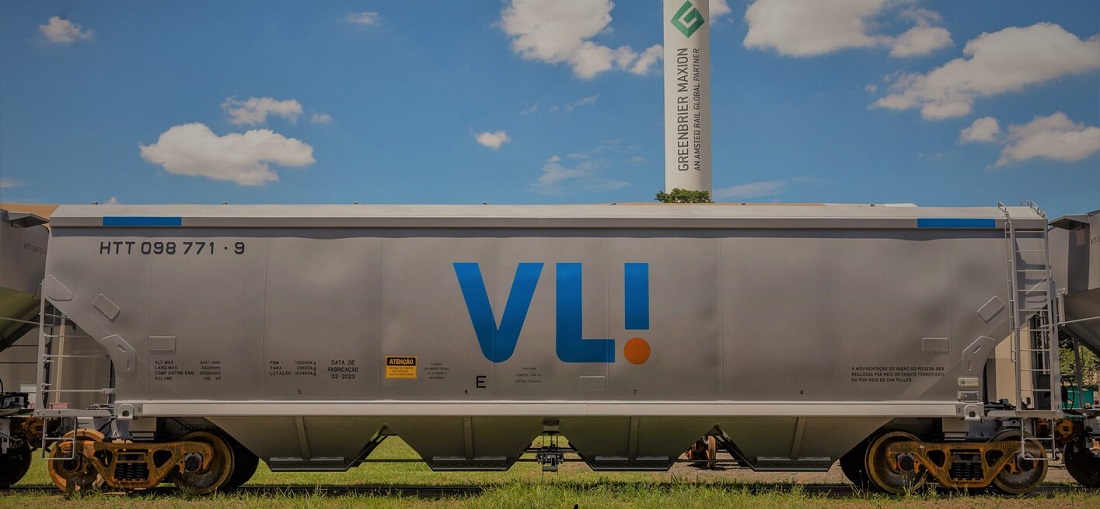
VLI Releases Sustainability Report Highlighting 7% Reduction in Greenhouse Gas Emissions
Aug, 12, 2024 Posted by Gabriel MalheirosWeek 202433
VLI has published its fourth Sustainability Report, showcasing significant achievements, including a more than 7% reduction in greenhouse gas (GHG) emissions per tonne transported, specifically from diesel used in locomotives (Scope 1), with 2020 as the baseline year. This milestone aligns with the company’s commitment to mitigating the environmental impact of its operations and its goal to reduce specific GHG emissions by 15% by 2030.
According to Rute Melo Araújo, VLI’s Executive Director of People, Innovation, and Sustainability, the company’s ESG agenda is deliberate, with targets tied to executive compensation. Moreover, responsibility for ESG commitments is distributed across all levels of the company, which maintains a management system for tracking performance in forums involving the Board of Directors, the Executive Committee, operational directors, managers, and all other employees.
“VLI continues progressing in the social and environmental pillars and various other ESG fronts. The company aims to be a benchmark in sustainability within our sector, which we strive to achieve through intentional actions that create value and leave a lasting legacy for employees, shareholders, clients, suppliers, and communities,” stated Araújo.
This achievement was made possible through efficient operations management combined with innovation and technology initiatives. GHG emissions are the primary indicator factored into energy efficiency results. Railway energy efficiency measures the amount of fuel consumed to transport a certain quantity of cargo from one point to another, including fuel used in shunting and services.
VLI’s energy efficiency is calculated based on its operations on the Centro-Atlântica Railway (FCA) and the North-South Railway (FNS). Each has its own GHG emissions levels. Over the years, the company has consistently integrated sustainability into its daily operations, with FCA and FNS together achieving an approximate 35% improvement in energy efficiency.
Projects
To continually enhance its energy efficiency, VLI is involved in several projects, such as investing in new wagons and locomotives, improving train models (distributed traction), managing train operations, introducing high-capacity wagons, and working on railway dynamics like wheel-rail contact management. Many of the company’s initiatives aimed at reducing GHG emissions and fuel consumption have emerged from intrapreneurship programs that focus on developing sustainability solutions for its operations.
One such initiative is the SemC project, which offsets the GHG emissions from the company’s logistics operations through carbon credits. In 2023, VLI conducted its first carbon credit market operation by offsetting GHG emissions from transporting 751,000 liters of gasoline and diesel between São Luís (MA) and Porto Nacional (TO) for the fuel distributor ALE. This was a pioneering effort in Brazilian rail transport.
Another key project in the company’s decarbonization strategy is the Leader system, an intelligent semi-autonomous driving solution that uses train and track profile data to calculate an optimized driving plan. This plan respects operational constraints while aiming for the lowest possible fuel consumption without compromising travel time, ensuring operational safety. The technology has been implemented in the newest locomotive fleets, which are used on VLI’s busiest corridors (Southeast, East, and North).
-
Ports and Terminals
Nov, 07, 2023
0
Renewal of Port of Itaqui Concession Announced During New PAC Launch
-
Ports and Terminals
Mar, 06, 2025
0
Paranaguá Port Increases Draft, Boosting Container Ship Productivity
-
Sugar and Ethanol
Oct, 17, 2022
0
Brazilian hegemony over sugar market strengthens
-
Commodities
Jun, 27, 2024
0
Commodities Ranking for East Coast South America | Jan-Apr 2024 vs. Jan-Apr 2023 | DataLiner



